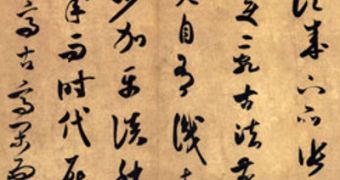Over the past several decades, China's fast-paced economic growth has by far surpassed its innovation levels, leaving the country to move ahead scientifically more through imitation than own discoveries. Now, Beijing authorities have taken a stance on this and awarded two of the nation’s most prominent scientists with cash prizes, and the official recognition of a life's work, in an attempt to encourage young minds to focus on internal research, rather than moving to other countries or working for the private sector.
Wang Zhongcheng, an 83-year-old neurologist, was awarded for his contribution to his field, for which he wrote a world-famous book. Also, the scientist developed novel ways of handling surgeries related to tumors on the brain stem and spinal cord, which again won him international praise. He received a gratification of 5 million yuan (roughly $730,000), as well as the State Top Scientific and Technological Award, which was first created in 2000.
The official Xinhua News Agency also announced Xu Guangxian, an 89-year-old chemist, as the second winner of the prize. During his long career, Guangxian focused his efforts on gaining a better understanding in the fields of physical chemistry and inorganic chemistry. He received the same amount of money as Zhongcheng, along with the nation's gratitude.
Chinese officials say that, as soon as more scientists come into consideration for the awards, they will increase the sum of money put into play. The prizes that were handed out on Friday are some of the largest given to single individuals thus far, and mark a change in Beijing's attitude towards science, which it left more or less for dead over the years.
Although even now the country is focusing its efforts on the most varied fields of research, ranging from stem cell studies to nuclear power, it still lacks the basic international recognition it craves for.
The list of things that Chinese scientists discovered over the years includes the recognition of the circadian rhythm, the concept of climate change, the first law of motion, negative numbers, solar wind, sunspots, the concept of true north, observations on leprosy and spontaneous combustion, as well as observations of snowflakes' hexagonal structure, among many other things.

 14 DAY TRIAL //
14 DAY TRIAL //